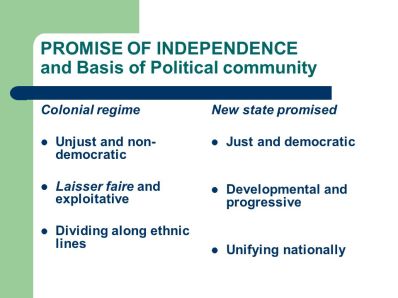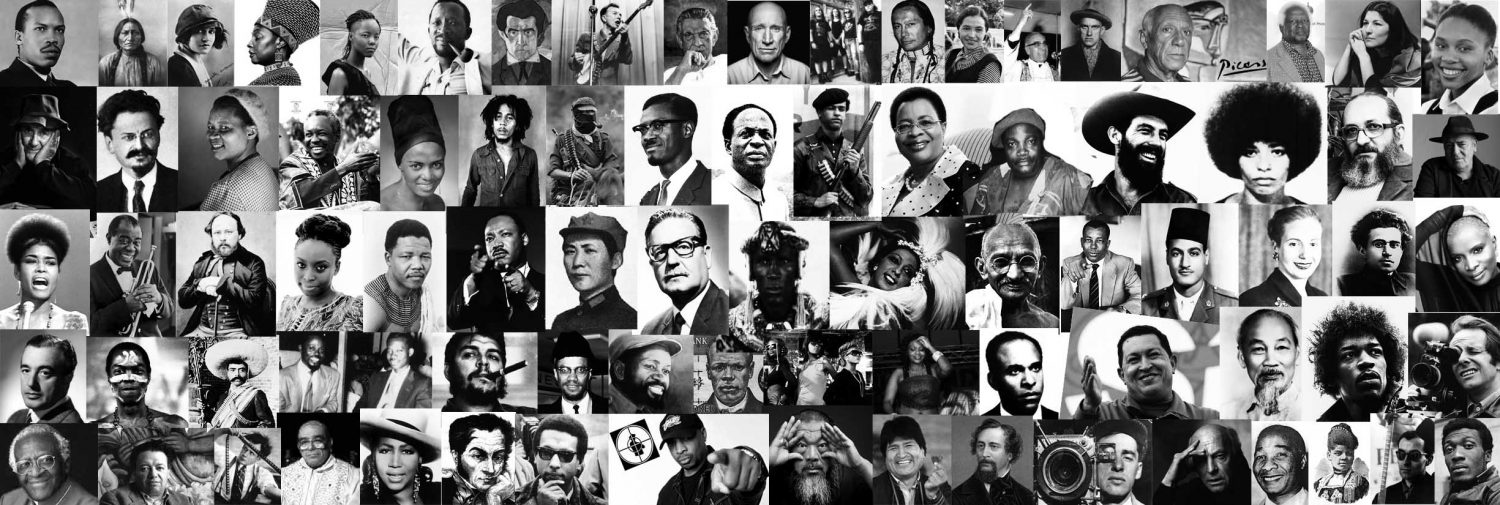Of course it is important to highlight all cases of corruption, inefficiency, bad work and  such. However I feel it would be a good idea to go one further, and make an analysis why these cases are happening. The way I see it there is a systematic issue at play. All Presidents in Malawi have gone wrong in similar ways. That means that a certain type of people floats to the top, or that people in the government system are pushed in a certain direction, and probably both.
such. However I feel it would be a good idea to go one further, and make an analysis why these cases are happening. The way I see it there is a systematic issue at play. All Presidents in Malawi have gone wrong in similar ways. That means that a certain type of people floats to the top, or that people in the government system are pushed in a certain direction, and probably both.
The way I see it, we are dealing with a neo patrimonial system, that is poisoning the quality of our governance.
Patrimonial in that it is comparable to the pre colonial African system, where every person had a personal relationship with the village head person. Tribute was paid, and the head person was at the disposal of the population to deliver the needed services, like mediation in disputes. If the head person was not performing, he/she had no violent power to fall back on. If the villagers simply refused to recognize the authority, the authority was finished. This provided an important check, and balanced power in traditional African societies.
This patrimonial attitude still exists among some African societies including Malawi. The formal rules are not enforced, and for access to resources, a personal relationship with the powerful is more important than the law. Those who suck up to the ruler float to the top, those who insist on the rules never rise in the hierarchy. Performance in the formal job description is not as important as performance in tributes to the ruler, both symbolic and material (financial). So people are rewarded with promotions and opportunities for self enrichment, not for good performance according to the formal requirements, but according to the tributes they deliver to the rulers.
In exchange the person who pays tribute is supported by the powerful. Again the rule of law is ignored, and overruled by the rulers. Part of the bribes float up the system, and the powerful shield the corrupt from the law.
The “neo” of neo-patrimonialism means that there is a formal structure, complete with constitution, laws, forms and such. However this is more form than content, and it is upheld with lots of protocol, but the formal rules are not enforced.
Time and time again the media is informing us about violations of rules, non-performance in the official roles. This is important, it keeps us alerted to the issues that we have as a nation. But it is not enough: we need change, and we need fundamental change. Only calling for the law in individual cases is not enough, we need to tackle the underlying neo patrimonial system, where too much power is vested in one person, the President. Because of this power the President can be blackmailed to do certain things. If his/her power would be more limited, the President could not be pushed into such a bad position. By the same token: the quality of many of the politicians in the area of governance as well as the area of their authority (content of ministry/parliamentary committee etc) is often very limited. This means that often the top civil servants can outmaneuver their bosses. In the patrimonial tradition, the bosses are bought with personal favours/enrichment, and the civil servants can run the country from behind the curtain. And they have built up lifestyles that are not sustainable on their official salaries (with children in foreign universities, living in mansions, driving luxury vehicles etc).
We can get angry over the misbehavior of politicians, and their seeming incompetence. But they do have a certain competence, and that is why they are the ones floating to the top. They are busy, not with the formal content of their job, but with the sustenance of their patrimonial network. This goes step by step, all the way down to the villager, who has an uncle in the city who can pay school fees for a child. This uncle could not do that from a meager salary, so the money comes from some other source. This way everyone in the country is made complicit in the corruption. And is given a stake in keeping the corruption going.
For you and me, urban middle class, it is self evident that the system is not performing, and that rule of law, free market capitalism, democracy, independent judiciary, functional parliament, bureaucratic decisions would improve the economy and our position with it. But for the average Malawian, who does not have a smart phone to read this English story, the situation may be very different. They are the majority of the electorate that keep the current flock of politicians in power. And they have not that much to expect from a capitalist democracy. The proletarians in capitalism are not well off. The poor have adjusted to their current situation, with some kind of protector somewhere in the system. On the other hand an independent judiciary, who are all middle and upper class, who rule according to the laws may not be very advantageous for the poor. Especially because the laws are being made by a legislative who are all middle and upper class, and who apply middle and upper class values. Which may not be advantageous for the poor, and maybe even worse than the situation is now. So they have a point in sticking with the current flock of rulers.
In Europe there was a slow transition from the feudal society, in many ways comparable to the current Malawian situation to a capitalist society. This started somewhere in the 16th century, but really took off in the late 18th, early 19th century.
In France Louis XIV had improved efficiency of the government system, by passing local rulers, who can be compared to our chiefs, and streamlining the administration, while the Malawian administration is still very chaotic (the chaos is caused by certain people, and used by the corrupt. The causers and the corrupt could very well be the same people). About 200 years down the line the economy in France had improved so much because of this efficient bureaucracy, that the bourgeoisie became powerful, and they started the French revolution, overturning the power of the King and the ruling class.
Our ruling class are not making the same mistake, they are keeping the government system very inefficient, so no development will take place, and no powerful bourgeoisie (middle class) can develop.
Our political analysts are not analyzing the system, they are only concerned with the bickering within the ruling class, where different factions are fighting over the spoils of the National wealth. But to improve the situation we need to work on the system, getting rid of the neo patrimonial logic. The first step to improve is to analyse the system (not the bickering within it, but the system itself) so we know what we are up against. Then we need to find an alternative that is beneficial to the average Malawian.
s


